Vegans and vegetarians who want to extend their cruelty-free choices from their diet into their wardrobe have a lot more choices than they did just a few years ago. But when it comes to sustainable shoes, things get a little more complicated. The most common material used for vegan leather is PVC plastic. PVC has a terrible environmental record, and usually doesn’t make for very high-quality shoes. Recycled plastic is a step in the right direction, but avoiding plastic altogether is a better choice.Chippewa Boots It’s still hard to find a completely vegan, plastic-free shoe. Fortunately, some shoe companies are starting to work with more plant-based materials instead of leather and petroleum-based synthetics.
Zen Running Club
Zen Running Club is getting close to its goal of a 100% plant-based running shoe. It has replaced plastic-based viscose with Lyocell, a breathable mesh fabric made from the pulp of farmed eucalyptus trees. Zen Running Club is one of a handful of companies using a new EVA foam made from sugar cane instead of plastic to make its midsoles. And while many athletic shoes now have lightweight plastic soles, Zen Running Club is sticking with natural rubber from an FSC plantation. The company is working to find plant-based replacements for the synthetic additives that are currently required to make the rubber perform well.
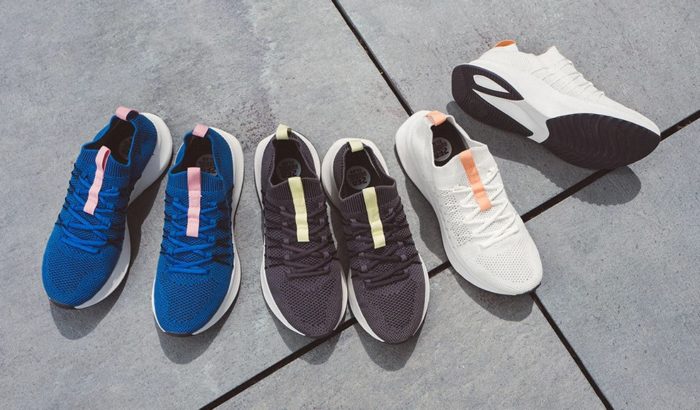
Mahabis
Since the pandemic, slippers have become an essential wardrobe item. Mahabis winter slippers are not plant-based; they are made from postconsumer recycled wool and virgin wool that is certified organic and humanely sheared (non-mulesed). But the company’s summer slippers are made from Tencel, one of the better sustainable fabric choices, with a natural cork footbed. Rick Owens Shoes Although designed primarily for indoor wear, Mahabis slippers have a sneaker-like sole that allows them to be worn outdoors. Some designs still use a plastic sole, but there are options with natural rubber soles or soles made from an EVA containing rubber and corn flour.
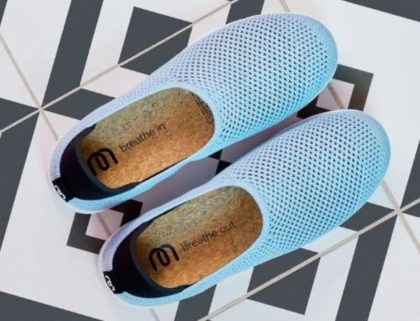
SOLE
The Canadian shoe brand Sole is best known for orthopedic shoes and footbeds but sustainability is also a top priority. Sole is a pioneer in the use of recycled wine corks to replace plastic foams in shoes. You can even contribute your own wine corks to its supply chain. The company’s ReCORK line uses cork footbeds. It also uses wool and veggie-tanned leather among the upper materials. Sole’s Bloom line partially replaces plastic foams with an EVA made from algae harvested from algal blooms in natural environments.
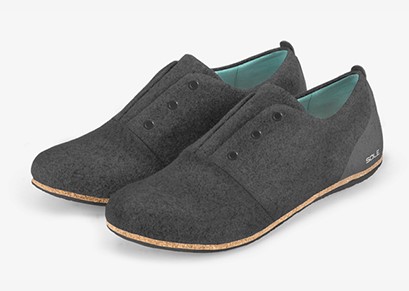
Allbirds
Allbirds is one sustainable shoe brand with a very high cool factor that is moving towards a completely plant-based shoe with its focus on bio-based materials and regenerative agriculture. Some Allbirds uppers use sustainable wool. But for many of its other styles, Allbirds uses a variety of plant leathers made from FSC-certified tree fibers. The company uses both recycled plastic and its trademark SweetFoam — a carbon-negative, rubber-like polymer made from sugarcane — to make soles.
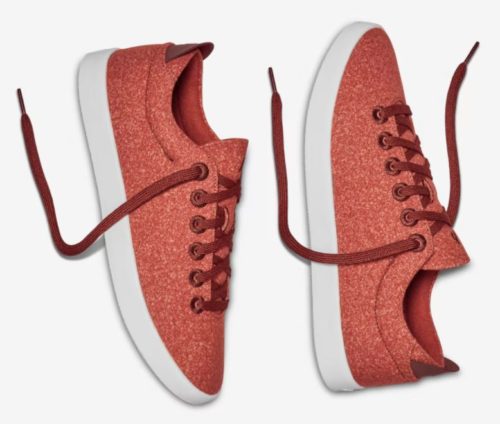
Native
Native Shoes began its sustainability journey with a focus on recycling. The Remix Project allows customers to recycle their old Native shoes through the company. Brooks Sneakers Now Native Shoes has introduced its first completely vegan, plant-based shoe. Although it looks a lot like a classic canvas sneaker, the Plant Shoe uses a variety of herbaceous materials, including a pineapple leaf fiber, linen, kenaf, cotton, and natural rubber.
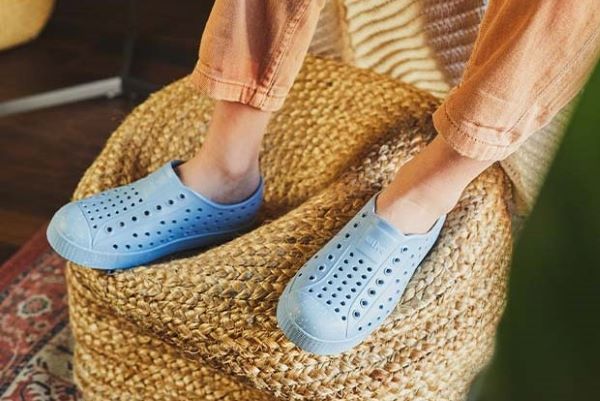
Big Brands
If you have brand loyalty to a major athletic sneaker brand, you can encourage the company to move in a more eco-friendly direction by buying its greenest lines. Most of the big athletic shoe brands offer shoes that are vegan or incorporate some plant-based materials. Reebok’s Forever Floatride GROW is made from eucalyptus, algae, and castor bean oil. Nike offers the Plant Cork Pack line of recycled cork and plant-based shoes containing 20% recycled content and the Happy Pineapple line that incorporates Piñatex. Adidas’ vegan shoes use recycled ocean plastic and more sustainably grown cotton.
Ortholite
If you’ve found a shoe that delivers on sustainability, but not on comfort, OrthoLite insoles are a good compromise; the insoles allow you to maintain foot health while supporting sustainable shoe companies. The Ortholite Recycled and Ortholite Hybrid insoles use polyurethane foam, which is an oil-based plastic. But Ortholite reduces its reliance on petroleum with a mix of recycled foam and a proprietary castor bean bio-oil. It also uses at least 5% recycled rubber in all of its foams. Ortholite insoles are sold as inserts. Many shoe brands, from Adidas to Cole Haan and Timberland, make shoes using Ortholite insoles.
